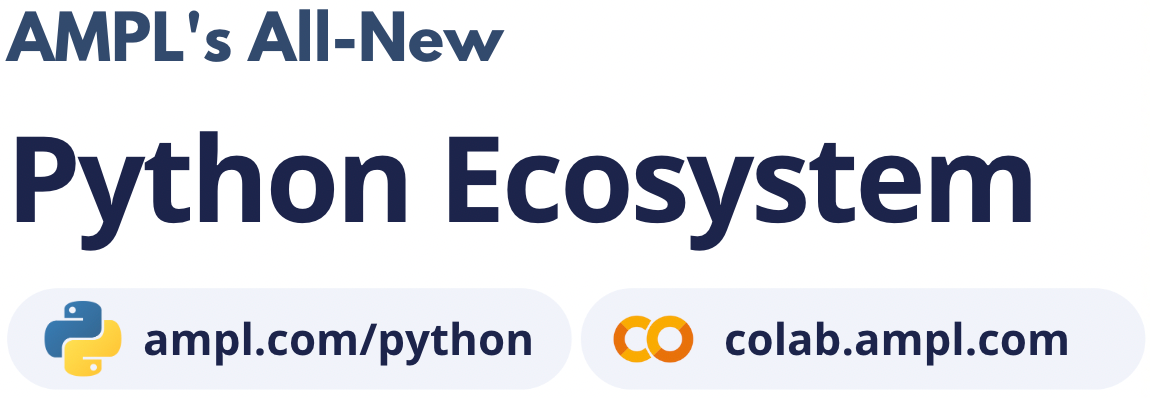Usage¶
The APIs provided by ampls:: can be used in three ways (Structure); each has its own advantages and drawbacks:
Generic usage: using only functions available in the base classes, the same code can be reused to implement solver-independent logic. To support this type of usage, the class
GenericCallbackis provided (cpp,python), deriving which a solver-independent callback can be defined.Solver specific usage: using the additional functions provided by each solver implementation, the code can be used only with one solver
Solver native usage: a subcase of the case above: each solver-specific model class provides access to the native C model object, on which all the C solver libraries functionalities can be used
This section will present the C++ syntax corresponding to each level, using gurobi as an example;
the first steps (getting an instance of the ampls::GurobiModel class) are the same for each usage type
and will not be repeated:
ampls::GurobiDrv drv = ampls::GurobiDrv()
ampls::GurobiModel model = drv.loadModel("diet.nl")
model.optimize()
Generic¶
Getting the objective value relies on the function ampls::AMPLModel::getObj(), therefore the following
code is valid for each derived class (solver):
double obj = model.getObj()
Solver specific¶
In this case, we rely on the function ampls::GurobiModel::getDoubleAttr(), which is available only for
gurobi:
double obj = model.getDoubleAttr(GRB_DBL_ATTR_OBJVAL)
Solver native¶
Here we gain access to the native C pointer and use the solver’s C library to access the same value:
GRBmodel* grbm = model.getGRBmodel()
double obj;
int status = GRBgetdblattr(grbm, name, &obj);
If we used CPLEX, the code would be relying on the CPLEX C library:
// model would be an ampl::CPLEXModel here
double obj;
int status = CPXgetobjval(model.getCPXENV(), model.getCPXLP(), &obj);

